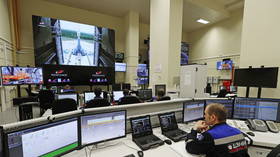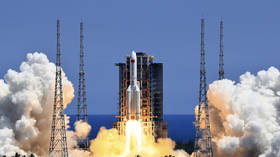Russia clarifies ISS pullout timeline

The timeline for Russia’s withdrawal from the International Space Station (ISS) has not yet been set because the process will be lengthy and depend on multiple factors, the head of Russian space agency Roscosmos, Yuri Borisov, said on Friday.
“We haven’t yet warned anyone about it, since it is unnecessary at this time. We simply said we will initiate the withdrawal process after 2024,” Borisov said in an interview with the Rossiya24 network.
“The exact timeline, whether it will be in mid-2024 or in 2025, will actually depend on a number of things, including the condition of the ISS itself and its operational performance,” he said. “But the fact that we will do it is no secret at all, and I reported this to the president.”
On Tuesday, in his first report to President Vladimir Putin after being appointed as Roscosmos chief in July, Borisov said the agency had made the decision to pull out from ISS after 2024, saying Russia will start putting together its own orbital station by that time.
In his Friday interview, the official emphasized that Russia’s decision had nothing to do with geopolitics. “As for the political aspects – I hate to disappoint you, but they simply are not there and I think they shouldn’t be,” he said. “The ISS project enriched global science with regards to our knowledge of the universe, of the Earth, helped all of its participants make significant research gains, and, to an extent, served to bring us all closer.”
In an interview with Russky Kosmos (Russian Space) magazine published back in August, former Soviet cosmonaut and chief designer for Russia’s RSC Energia spacecraft manufacturer Vladimir Solovyov said Russia would start construction on its own space station in 2028. Dubbed ROSS (Russian Orbital Service Station), the project would be based on the Science Power Module 1, a new module originally created for ISS that is now being repurposed for the new station, Solovyov revealed.
Launched in 1998 as a joint effort by Russian, American, Japanese, Canadian, and European space agencies, ISS is divided into Russian and American sections, the latter being run by the US and other participants of the project.














